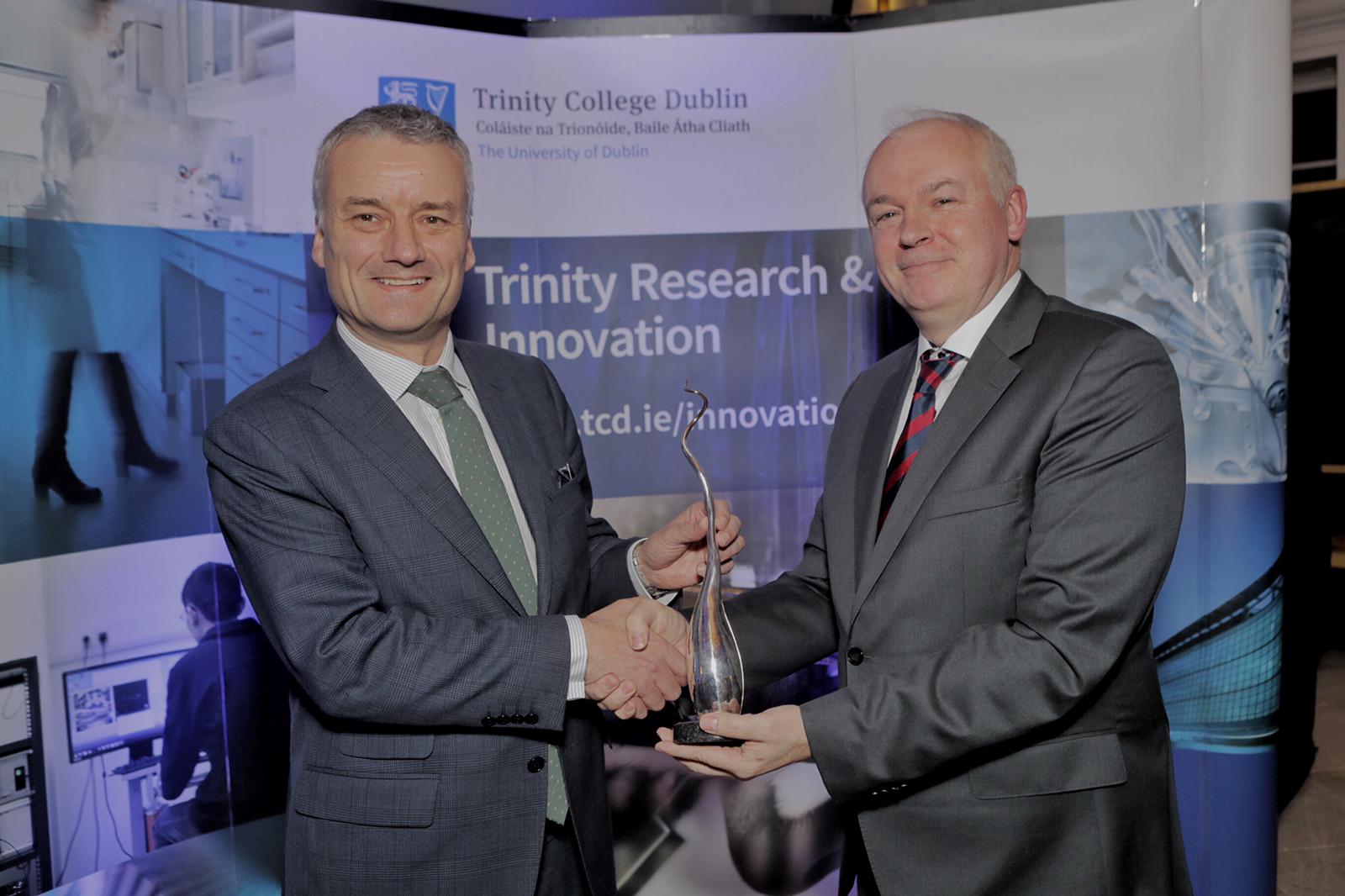Prof Vincent Wade was awarded the Provost Innovation Award at the Trinity Innovation Awards, which acknowledge the most innovative researchers across all fields.
Wade was awarded the greatest honour of the night for his outstanding contribution to innovative ideas throughout his career. Wade is a recognised world-leading expert on adaptive intelligent systems and personalisation, and is the co-founder and director of the ADAPT centre for digital content innovation.
Presenting the award to Wade, Provost Patrick Prendergast said: “I am delighted to be presenting this award tonight to Professor Vinny Wade. Through his innovative research he is continuously exploring new ways to unlock the potential of digital content, empowering and enhancing online engagement between people.
“Trinity academics have consistently achieved excellence in discovery and innovation, and Vinny is one of our role models in converting breakthrough concepts into practical solutions”, Prendergast said.
Seven other researchers were recognised for their contributions to research. The Lifetime Achievement Award was presented to Prof Sean Corish, a Fellow Emeritus in chemistry, who, along with his colleague Prof Owen Corrigan, developed the world’s first nicotine patch, which was developed in collaboration with Elan Pharmaceuticals.
Prof Bruce Murphy, a biomechanical engineer, was awarded the Campus Company Founders Award. Murphy is a leader in developing innovative medical technology, targeting major challenges in healthcare and improving the lives of patients world-wide. He leads and trains a highly successful group of researchers at the Trinity Centre for Bioengineering, where he is also the deputy director. Murphy has filed more than 15 patents, and has founded two campus companies to date based on technology developed in his laboratory.
The Inventors Award is presented to academics whose innovative research has led to the creation of intellectual property and has subsequently licensed to industry. This year, the award went to two principal investigators in Trinity’s Advanced Materials and Bio-Engineering Research (AMBER) Centre.
Prof Johnny Coleman of chemical physics was recognised for his breakthrough work in practical solutions with graphene, while Dr Ramesh Babu Padamati won the award for his success in the polymer technologies industry.
Prof Danny Kelly, a professor in mechanical and manufacturing engineering was presented the One to Watch award, which is given to up-and-coming entrepreneurial academics whose research is most likely to result in the next campus company, commercial license or industry engagement. Kelly is the current director of the Trinity Centre for Bioengineering.
Long Room Hub Director Prof Jane Ohlmeyer and Prof Orla Hardiman were presented with the Societal Impact Award. Ohlmeyer, in her role as Chair of the Irish Research Council works to promote and protect research spanning the whole academic sector.
Hardiman is a world leader in motor neuron disease research, with her lab having discovered the gene responsible for a specific variant of the disease in celtic populations. Until recently, Hardiman was Director of the Trinity Biomedical Science Institute, and has been newly appointed as clinical lead of the National Clinical Programme for Neurology starting next month.
Six spin-out companies, which have obtained campus company status, were recognised at the awards ceremony also, including Junction Therapeutics, which delivers treatments across the blood brain barrier, CroiValve, which develops a minimally invasive device for the treatment of a heart condition, and Elio Medical, which is developing a novel technology to prevent pneumothorax, a common and sometimes deadly complication of lung biopsy.







